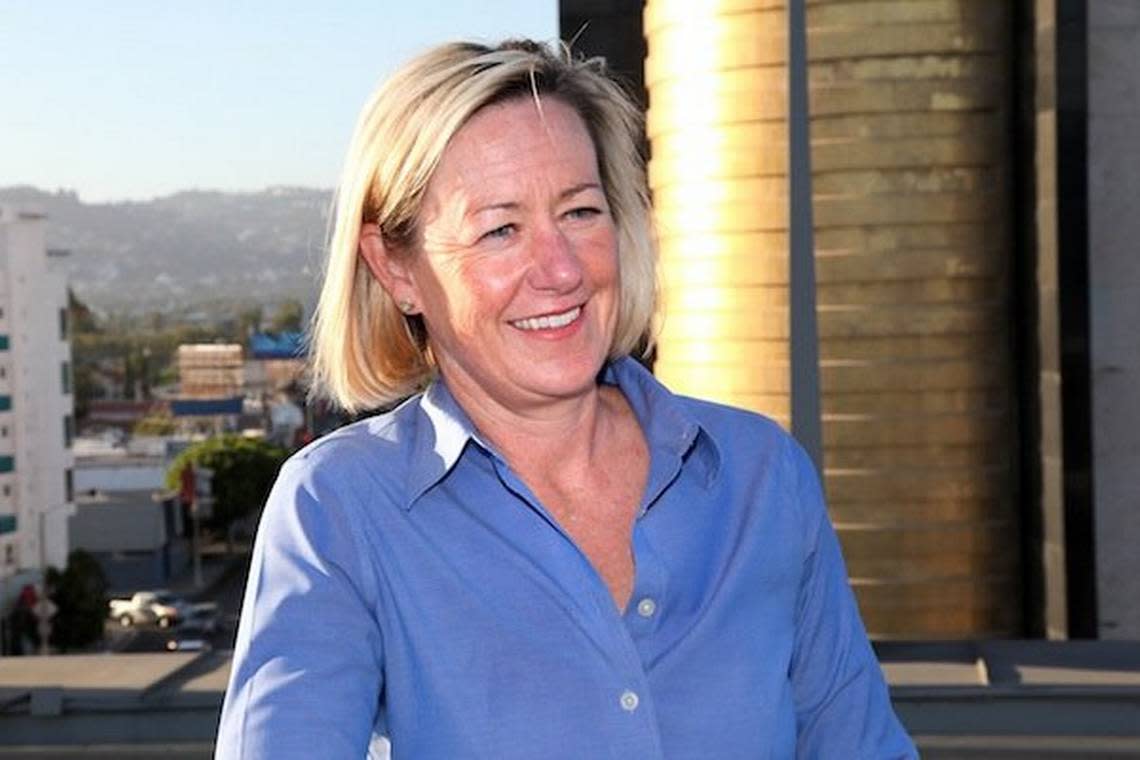Westlands ready to embrace new water practices in wake of district board takeover
The math was not in Tom Birmingham’s favor.
It was clear weeks before the Nov. 8 election that the board of the massive Westlands Water District in western Fresno County would be changing. And that change would likely result in the controversial general manager’s ouster.
There were four board seats up for election.
A preliminary vote count released by the district Monday night confirmed a sweep of all four seats by the so-called “change coalition.” With two existing board members already counted among the change coalition, that gives it a solid majority of six on the nine-member board.
And No. 1 on the coalition’s to-do list is “a change in leadership,” according to Sarah Woolf, who along with Jon Reiter helped coordinate a group of increasingly frustrated Westlands farmers to run the slate of change candidates.
That means Birmingham’s more than 20-year reign over Westlands may be rapidly ticking down.

Before Westlands’ Tuesday meeting, there was a flurry of speculation over a closed-session item to discuss his contract. But that item was pulled from the agenda at the last minute.
Still, the idea of changing Birmingham’s contract weeks before new board members are announced is concerning, said Woolf.
“The new board has to deal with whatever terms the old board sets up,” she added. “That’s the fear.”
But the meeting wasn’t entirely devoid of drama as longtime board member and Westlands farmer Ryan Ferguson, who was voted out of office, gave a tearful goodbye speech.
“In light of the preliminary vote count of the election it appears this will be my last board meeting sitting behind the board table,” said Ferguson. “I wanted to take an opportunity to address the board, the staff and the growers of the district prior to my departure from the board.”
Ferguson continued by thanking specific board members and district staff, recounting memories and praising Birmingham for his leadership.
The new board members include Ross Franson, Jeremey Hughes, Ernie Costamagna and Justin Diener.
Groundwater recharge a priority
With the ongoing drought, the state’s groundwater law and continued pressures on the Sacramento-San Joaquin Delta, Westlands’ leadership will be crucial to achieving the coalition’s goals.
Those goals were listed in mailers as:
Urgently develop more groundwater recharge.
Provide growers with clear and consistent pumping regulations.
Develop a plan that incentivizes farming alternatives.
Improve relations with other water districts, disadvantaged communities, environmental and drinking water advocacy groups.
For some of the new board members, the first order of business will be clarifying rules around recharge. Groundwater recharge is a major priority, Franson said. He was the only new board member who responded for this story.
“I do think we’ve gotten to the point where we need to have some certainty,” Franson said. “People aren’t going to be spending a lot of money investing in recharge if they don’t have clarity about how it’s gonna play out in the future.”
Next Westlands general manager
Asked if the group had any possible candidates for a new general manager, Woolf and Reiter said not yet.
The search for a new general manager hasn’t started since Birmingham is still in the position and new board members aren’t sworn in yet, Woolf said. But new leadership could come once the board is changed.
“There’s a lot of people in the water world that continue to do amazing things that I’m sure the board will want to start talking to once a change has been made,” Woolf said.

It’s a coveted position and some possible candidates have already expressed interest, according to a change coalition member.
If a new person is hired, it’s unclear what their pay would be.
Birmingham earned a significant salary, but has been in the position since 2000.
In 2020, Birmingham earned $442,196 in pay and $55,633 in benefits for a total package of $497,892, according to Transparent California, a website that tracks public employee compensation.
It’s unclear what Birmingham’s severance may be as Westlands did not provide SJV Water a copy of his most recent contract, which was renewed in December 2021 over the protests of several Westlands farmers. The contract was renewed a full year before its expiration date.
Birmingham has overseen Westlands during a time of significant change in California’s water world, including greater restrictions on exports from the Sacramento-San Joaquin Delta, which Westlands relies on almost exclusively.
While newer board members advocated for more innovative, collaborative solutions to strengthen the district’s regional water sources, Birmingham kept the district focused on the delta, critics such as Woolf and others noted.
The delta is important, but not to the exclusion of other projects, she said. Such as groundwater recharge, which is listed as a top priority for the change coalition.
Instead of working with Westlands growers to create more recharge opportunities, Woolf said, Westlands under Birmingham actively tried to thwart projects. She pointed to a project between Woolf Farming, Maricopa Orchards and the small, impoverished town of Huron.
The group applied for a water permit on the typically dry Arroyo Pasajero Creek to capture and store its occasional flood waters, replenishing groundwater for those farms as well as dedicating 500 acre feet a year for Huron’s residents. Westlands opposed the permit, which was ultimately assigned to the group and the project is moving forward without the district.
Those are the kinds of collaborative, innovative programs the change coalition wants to see, Woolf and others said.
SJV Water is a nonprofit, independent online news publication covering water in the San Joaquin Valley. Lois Henry is the CEO/Editor of SJV Water. She can be reached at lois.henry@sjvwater.org . The website is www.sjvwater.org .
